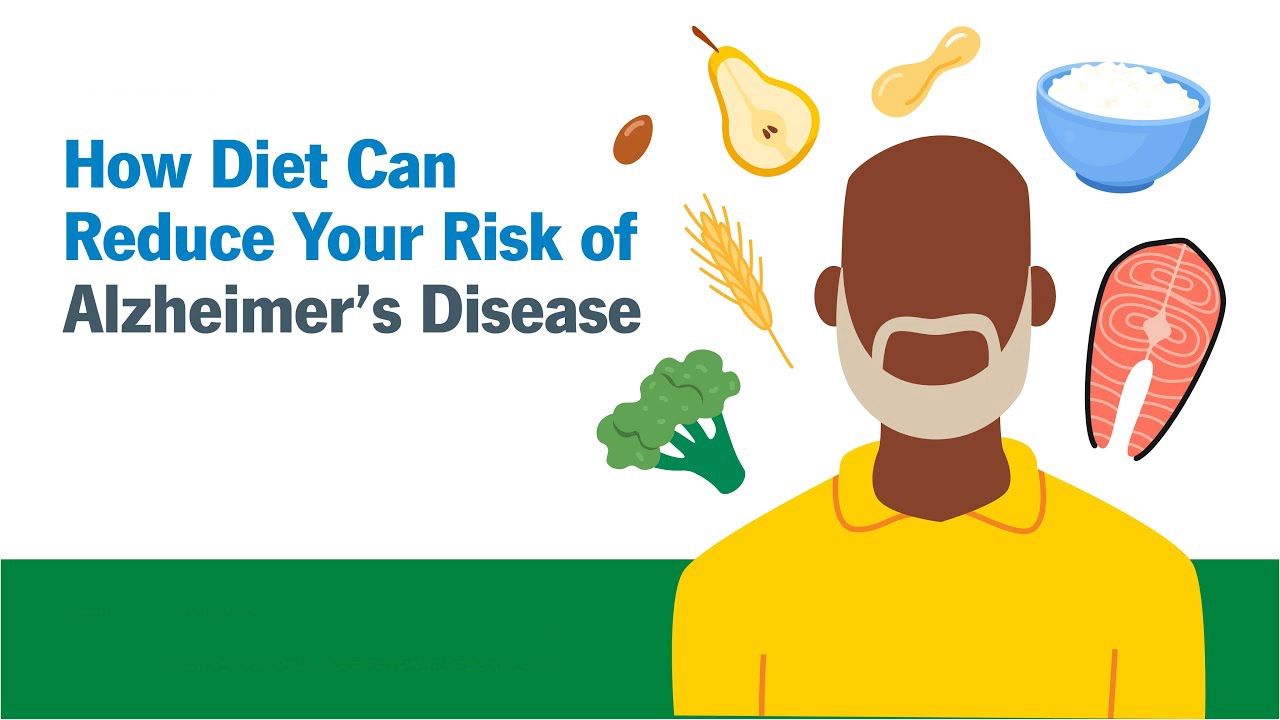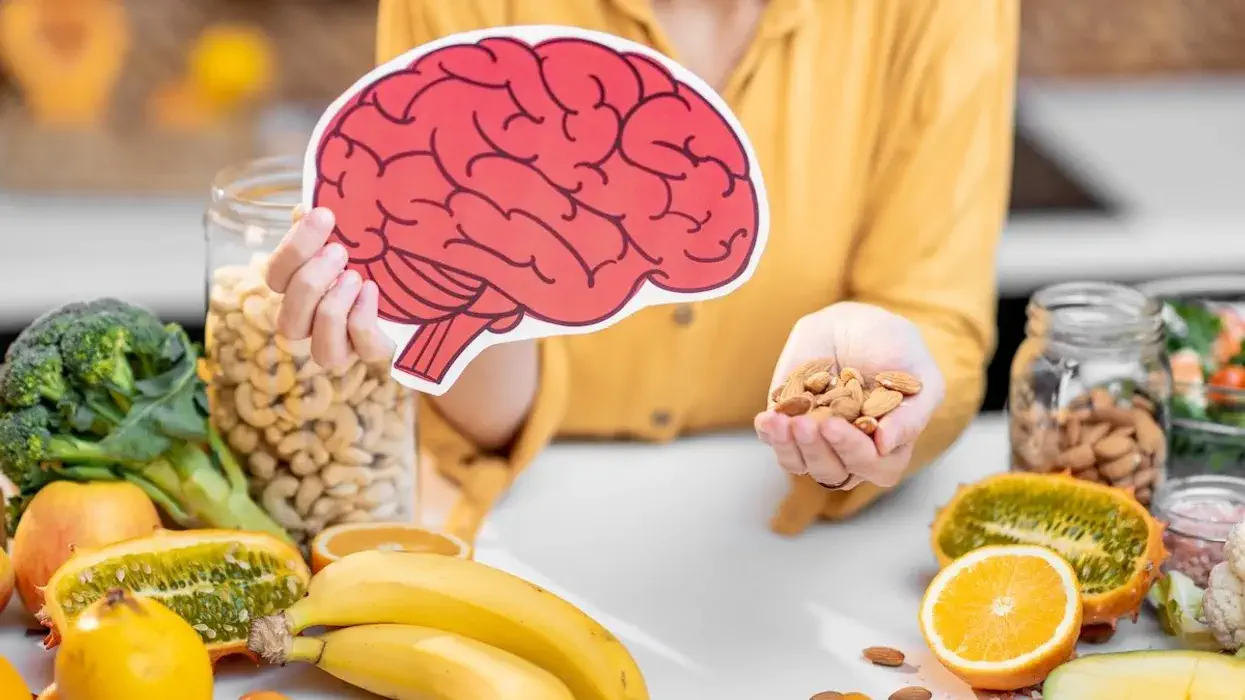
Diet for Alzheimer’s Patients: Dementia Nutrition Guidelines
As the world’s population ages, dementia is a growing problem, and Alzheimer’s is considered the most common form of dementia in older people. However, research suggests that modifying certain factors, especially in middle age (45 to 65 years old), can significantly prevent Alzheimer’s disease. Research suggests that lifestyle changes, social activities, exercise, and following a healthy diet for Alzheimer’s patients can help prevent Alzheimer’s to some extent.
There are also supplements that play a significant role in dementia care for elderly quality of life, and their consumption in the diet of elderly people with Alzheimer’s can delay the onset of Alzheimer’s or slow the progression of the disease. Yes, you got it right, there are many recommended foods to add to the diet of Alzheimer’s patients that have neuroprotective properties. How to handle elderly with Alzheimer’s? In this article from humanhealthmag, the dos and don’ts of the diet of the elderly with Alzheimer’s disease, and the foods that are useful for them, are discussed.
What is Alzheimer’s?
Alzheimer’s is a progressive inflammatory and degenerative disease of the nervous system. This disease is caused by chronic inflammation of nerve cells in the brain, followed by the body’s inability to deal with the inflammatory factor and nerve cell death, and is considered the most common type of dementia. Alzheimer’s disease is the most common and severe type of dementia in the world.
Symptoms of Alzheimer’s: Memory loss, confusion, lack of decision-making power, mental problems, loss of concentration, behavioral disorders, and ultimately movement and walking disorders.
Reverse dementia with diet! Don’t surprise! Proper nutrition is essential for strengthening and maintaining a healthy body. Alzheimer’s elderly nutrition is doubly important because, if improper, it can cause behavioral symptoms and weight loss in the affected person. Eating nutritious foods helps to strengthen the health of a person with dementia and slows down the progression of the disease. In the following, we describe some of the most important ingredients in a suitable diet for Alzheimer’s patients.
Principles of Proper Nutrition for People with Alzheimer’s
Before we discuss the nutrition of elderly Alzheimer’s disease, it is necessary to recall a few dietary considerations. One of the principles of proper nutrition for people with Alzheimer’s that doctors emphasize is breaking meals into separate and smaller meals. Instead of eating three relatively good and complete meals throughout the day, it is better for seniors with Alzheimer’s to eat smaller meals and snacks regularly. Each meal should be nutrient-dense.
For example, seniors may eat a bowl of oatmeal with milk and fresh fruit first thing in the morning. Then, a few hours later, they may eat a handful of nuts with an egg and some fruit. Your senior may have weak taste buds that are a factor in his or her loss of appetite; in this case, one tricks to stimulate appetite in the elderly is to use dips, sauces, and condiments to increase the appeal.

Diet for Alzheimer’s Patients
What are the nutritional needs of Alzheimer’s patients? Because Alzheimer’s is considered an inflammation, it is a priority in designing the nutrition of the elderly with Alzheimer’s disease. Best foods for dementia patients to eat and the anti-inflammatory diet plan, which has antioxidant properties, is as follows:
1) Vitamins and Minerals
- Vitamin E: Consuming foods or medications containing vitamin E can help these patients. Vitamin E is also found in vegetable oils, in addition to fruits and vegetables. However, excessive consumption of fats and oils is also harmful to all members of society, including those with Alzheimer’s disease.
- Vitamin C: Vitamin C has beneficial effects in Alzheimer’s disease due to its antioxidant properties and prevention of the formation of beta amyloid oligomers.
- Vitamin A and beta-carotene: Vitamin A and beta-carotene are also key micronutrients in the prevention of Alzheimer’s disease, which leads to a decrease in the production of beta amyloid oligomers. Plasma levels of vitamin A and beta-carotene are low in people with Alzheimer’s disease, so vitamin A deficiency can be a risk factor for Alzheimer’s disease.
- Vitamin E: A fat-soluble antioxidant that has neuroprotective effects.
- B vitamins: Increasing intake of folate and vitamins B6 and B12 is associated with the elimination of homocysteine, which can prevent the occurrence of Alzheimer’s. Arugula, collard greens, kale, spinach, and other dark green leafy vegetables contain vitamin B9. This vitamin seems to improve cognition and memory in older adults. Vitamin B9 also plays a significant role in preventing depression. Dark greens also contain vitamin E, which protects brain tissue from inflammation and stress in older adults with Alzheimer’s.
- Therefore, it is better to include dark green leafy vegetables in the diet of older adults.
- Vitamin D: Vitamin D has a negligible effect on reducing beta-amyloid and plays its role in Alzheimer’s more through antioxidant, vascular, anti-inflammatory and metabolic effects. People with cognitive diseases have lower levels of vitamin D than healthy people. It has also been found that women who are deficient in vitamin D are more likely to develop Alzheimer’s disease in old age.
- Vitamin K: Vitamin K, which is found in abundance in spinach and broccoli, is one of the nutrients effective in reducing dementia.
2) Walnuts and Nuts
Walnuts are brain food that is rich in omega-3. Walnuts have the highest antioxidant among nuts. So consuming walnuts can also prevent Alzheimer’s. Of course, other nuts in nuts that contain omega-3, such as almonds, are also useful for preventing Alzheimer’s disease. Almond skin contains vitamin E. This vitamin is one of the types of antioxidants.
Almonds, cashews, hazelnuts, peanuts, and walnuts are good choices for a diet for Alzheimer’s patients. Each small handful of nuts provides omega-3 and omega-6 fatty acids, as well as vitamins B6, B9, E, and magnesium. These compounds act as mood boosters and also prevent memory decline. Flax seeds, pumpkin seeds, and sunflower seeds are other alternatives that contain similar nutrients.
3) Salad with Vegetable Oils (Olive Oil)
Olive oil prevents the occurrence of forgetfulness and Alzheimer’s in elderly people. The unsaturated fatty acids in olive oil can help maintain the structure of brain cell membranes. Of course, the benefits of olives are not only for prevention. Those who used olive oil in their salads saw a 30 to 40 percent improvement in the signs and symptoms of Alzheimer’s disease.
4) Mediterranean Diet
The Mediterranean diet includes the following:
- Fish
- Legumes
- Vegetables
- Olive oil
- Various fruits
- Some dairy products
- Meat and poultry in small amounts
This diet of Alzheimer’s patients has been shown to reduce the risk of Alzheimer’s and reduce mortality in these patients. All kinds of fish, especially herring, salmon and sardines, are oily fish. Oily fish are rich in omega-3 fatty acids that keep the brain in optimal working condition. These nutrients also prevent the growth of brain lesions. Including fish in diet for Alzheimer’s patients can play an important role in controlling their condition. Of course, it should be noted that the number of servings of fish should not exceed 3 times a week.

5) Fruits and Vegetables with Different Colors, Especially Dark-Leaf Vegetables
Broccoli, Brussels sprouts, kale, and cauliflower all contain vitamin B9 and carotenoids. These compounds lower levels of the amino acid homocysteine. The amino acid homocysteine reduces levels of environmental perception and cognition. Carrots, tomatoes, and other colorful vegetables also have a lot of vitamins and nutrients that are beneficial for people with Alzheimer’s.
Eat more green vegetables. Low consumption of green vegetables causes a drop in blood folic acid and the appearance of blood clots in the capillaries of the brain and damage to brain tissue, which leads to forgetfulness. Green leafy vegetables such as spinach and broccoli reduce the speed of memory loss and thinking power.
6) Whole grains
Brown rice, bulgur, oats, wheat germ and whole grain breads are rich in fiber, vitamin E and omega-3 fatty acids. The complex of compounds found in whole grains is essential for cardiovascular health. These nutrients increase blood circulation, giving the brain a better chance of functioning better. Using whole grains in the diet of seniors with Alzheimer’s is essential. It should be noted that the bread used by seniors is whole grain and enriched.
7) Drink plenty of water
Alzheimer’s patients have difficulty recognizing feelings of hunger, thirst, and fullness. In addition, as the disease progresses, patients’ attention and concentration decrease, and the person may not remember eating immediately after eating a meal. In many cases, these patients do not realize that they are thirsty, and because they do not consume water or fluids, they lose their body water and have problems.
8) Eat an apple a day
The main factor in causing Alzheimer’s is oxidizing free radicals, which are produced more with age. Apples contain an antioxidant called quercetin, the largest amount of which is hidden in its skin. Red apples have more antioxidants than yellow and green apples.
9) Chocolate
Daily consumption of chocolate for seniors helps improve brain activity and is effective in preventing Alzheimer’s and dementia. Eating cocoa daily is effective in improving mild mental disabilities. Flavandels in cocoa, especially dark chocolate, are very effective in preventing memory loss and Alzheimer’s.
10) Consumption of soy
Among the important ingredients consumed in the diet for Alzheimer’s patients is soy. Soy is the king of lecithin. Because the quality of lecithin obtained from soy is better and higher than other compounds. The brain needs acetylcholine to perform its natural activities, which comes from lecithin. If we have provided ourselves with sufficient reserves of lecithin in our youth, we will get Alzheimer’s much less often than others.
11) Polyphenols
Polyphenols are natural antioxidants that have beneficial effects in Alzheimer’s. These compounds have a wide range of biological effects, including:
- Regulating various enzymes
- Preventing metal transport
- Preventing inflammatory reactions
- Inactivating free radicals
- Intracellular signaling and gene expression
Polyphenols can also prevent the formation of beta amyloid and the progression of dementia.\
Best Foods for People with Alzheimer’s
- Beans, Nuts, Seeds and Pulses
- Strawberries and Blueberries
- Colorful Fruits and Vegetables
- Cocoa, Coffee and Tea
- Fish
- Leafy Green Vegetables
- Probiotic Foods such as Yogurt, Kefir, Sauerkraut, Cottage Cheese, etc.
- Edible Mushrooms

Dementia Foods to Avoid
Many studies have examined and proven the effect of the diet for Alzheimer’s patients and the prevention of dementia. It can be said that avoiding harmful foods is as important as eating nutritious and beneficial foods. Foods older adults with dementia should avoid because lead to an increase in the disease in them include the following:
- High-fat and high-calorie diet: saturated and animal fats (butter), animal butter, all kinds of fried foods at high heat, red meat (reduce meat consumption to 2 times a week)
- Refined carbohydrates: white sugar, all kinds of sweets and cakes, white flour and all kinds of bread made with this flour, white rice, all kinds of macaroni and pasta
- Processed foods: Processed cheese, sausages, smoked meats, and salted and prepared foods
- Alcohol
- Fatty and high-cholesterol foods
- Gluten (foods such as cakes and pastries, white bread, chips, candy, pretzels, processed foods, etc.)
- Salt
5 Best Drinks That Can Help Prevent Dementia
In many cases, we see loss of appetite or poor nutrition in elderly people. In such situations, using natural fruit juices can be an ideal option. There are many drinks that prevent dementia and Alzheimer’s. Studies show that consuming citrus fruits can reduce the risk of mental and cognitive diseases by up to 36%. 5 of the best drinks that can be included in the diet of people with Alzheimer’s include the following:
- Green tea
- Orange juice
- Cranberry juice
- Green smoothies
- Coffee

Dietary Recommendations for Alzheimer’s Patients
- Make sure the patient drinks enough fluids throughout the day.
- Be patient and do not rush when feeding the patient with Alzheimer’s.
- Set the table and dining table simply and with a small number of dishes. Do not use patterned tables and plates so that the elderly person with Alzheimer’s does not get confused. Preferably, use simple dishes but with contrasting colors so that they are visible on the table.
- If the patient does not feel like eating, postpone this task to another time or even keep him busy with another task until he returns to the dining table.
- To make it easier to do the work and prevent the elderly person’s clothes and his environment from getting dirty, use an apron and a plastic tablecloth.
- To maintain concentration in the elderly person with Alzheimer’s, serve his food in a quiet and peaceful environment. It is better to turn off the TV and radio while serving food so that the patient is not distracted.
- Maintain the patient’s oral and dental hygiene; be sure to use a toothbrush.
- Prepare the elderly person’s favorite foods for them, provided that they are not part of the food restrictions listed above.
- Prepare light and understandable foods for the elderly person with Alzheimer’s and respect their old eating habits and preferences.
- If the patient forgets to eat, divide their meals into several portions.
- Try not to isolate the patient from the family and create conditions for the patient to eat together.
- Try to use a balanced and varied diet to meet all the patient’s nutritional needs.
- Try to prepare foods that the patient likes and use appropriate seasonings.
- Use single-sentence words; for example, say, “Now pick up the spoon, take some food, and now eat the food.”
- Do not be alarmed if the elderly person with Alzheimer’s resists using eating utensils (spoon and fork), because the person may have forgotten how to use a spoon and fork. Eating with your hands and fingers is a safe alternative to spoons and forks. Remember that proper nutrition is more important than the patient’s eating habits. You can also use a long-handled spoon instead of a fork.
- Make sure the food is not hot.
- Some elderly people with Alzheimer’s hide or store their meals because they can’t remember when they last ate and do so out of fear of hunger. If this happens to you, stay calm and divide your patient’s meals into more frequent ones.
- If the patient has dental problems or is unable to chew, try giving them soft foods and mixed foods with a spoon.
- Limit tea, coffee, and soda, and use raisins and berries instead of sugar and sweets.
- If the elderly person is not eating well or cannot remember when they ate, it is recommended to increase the number of meals and reduce the amount of each meal. For example, give him bread and cheese at one meal and fruit juice at the next meal.
- If the person with Alzheimer’s has another disease, such as diabetes in the elderly, be sure to follow a special diet as recommended by the doctor.
- Avoid giving foods such as nuts, raw carrots, chewing gum, etc., as they may be difficult for the patient to swallow and may become lodged in the patient’s airway.
Concluding Remarks
How to reverse dementia and Alzheimer’s? Diet for Alzheimer’s patients should include a balanced diet consisting of vegetables, fruits, whole grains, low-fat dairy products, and lean protein foods with a variety of healthy and nutritious foods. In addition to consuming nutrients, avoiding some harmful foods such as alcohol, high-fat foods, salt, and smoking can be effective in reducing the incidence of dementia.
Your feedback is the secret ingredient to improving our content! Comment below and let us know how this post resonated with you. We want to hear ALL your ideas!

Frequently Asked Questions
What foods are bad for Alzheimer’s patients?
Alcoholic beverages, cigarettes, high-fat and high-calorie foods, processed foods, refined carbohydrates, alcohol, and salt should be eliminated from the diet of an elderly person with Alzheimer’s.
What is the best diet for Alzheimer’s patients?
Dark green vegetables, brightly colored vegetables, cabbage, legumes, whole grains, turmeric, fish, berries, and nuts are among the foods that are suitable for seniors with Alzheimer’s.
